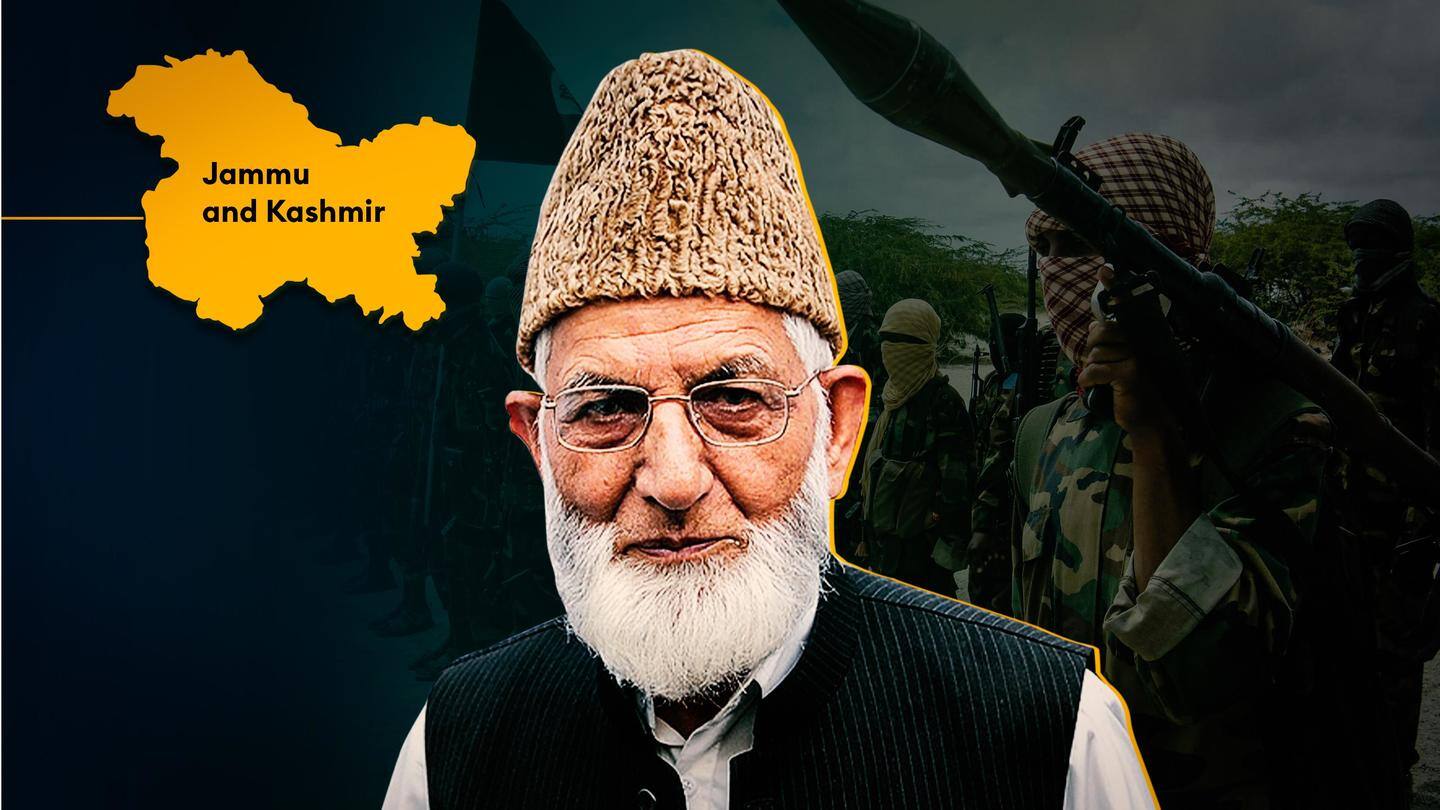
Centre mulls ban on both factions of Hurriyat under UAPA
What's the story
The Centre is reportedly considering a ban on both factions of the All Parties Hurriyat Conference under the stringent Unlawful Activities Prevention Act (UAPA).
While discussions to ban both the hardline and moderate factions of Hurriyat as "unlawful associations" have already begun, the final call will be taken at the "highest level in the government," The Indian Express reported.
Here are more details.
Details
Why is the government considering a ban?
The decision to ban Hurriyat is in accordance with the Centre's policy of zero-tolerance against terrorism.
The discussion gained momentum after Hurriyat came under the government's radar for allegedly funding terrorist organizations.
An investigation by the J&K administration and police revealed that MBBS seats allocated to Hurriyat leaders in Pakistani institutes were being sold to fund terror groups such as Lashkar-e-Taiba, Hizb-ul-Mujahideen, and Dukhtaran-e-Millat.
Background
What is the Hurriyat Conference?
The Hurriyat Conference was constituted in 1993 as a united front of 26 groups who worked toward Kashmir's separatism.
These include some pro-Pakistan and banned outfits such as the Jamaat-e-Islami, JKLF, and the Dukhtaran-e-Millat.
In 2005, the Hurriyat split into two groups with the moderate group being led by Mirwaiz Umar Farooq and the hardline group headed by Syed Ali Shah Geelani.
Cases
2 cases will be considered to support the ban: Report
The government is reportedly considering two cases to support the Hurriyat ban.
These include a probe by the National Investigation Agency in which several Hurriyat leaders were arrested and a case related to PDP youth leader Waheed-ur-Rahman Parra.
Parra allegedly paid Rs. 5 crore to Geelani's son-in-law, Altaf Ahmed Shah, for keeping Kashmir in turmoil after Hizbul Mujahideen terrorist Burhan Wani's 2016 killing.
Other developments
NIA probe against Hurriyat leaders on terror funding
Separately, the NIA has arrested 18 separatist leaders from Kashmir, including those from the Hurriyat Conference, for alleged terror funding.
In 2018, the NIA had filed a chargesheet in the case against 12 people, including Lashkar-e-Taiba chief Hafiz Saeed.
In 2019, it had also raided residences of Mirwaiz, JKLF chief Yasin Malik, Geelani's son Naseem Geelani, among others.
Later, the agency also arrested Malik.
Information
NIA named Hurriyat chiefs Geelani, Mirwaiz for terror funding
In its chargesheet, the NIA had named both Geelani and Mirwaiz, claiming the duo has been fuelling separatism in J&K. However, the agency had not named them as accused. Geelani's son-in-law was also arrested by the NIA in the terror funding case.
NIA
Triangular network of terrorists, Hurriyat, Pakistan: NIA
The NIA has maintained that the allotment of medical seats to Hurriyat leaders in Pakistani institutions aided anti-India forces.
"This shows a triangular nexus wherein the terrorists, the Hurriyat, and the Pakistani establishment are the three verticals...they are ostensibly patronizing the Kashmiri students in order to prepare a generation of doctors and technocrats in Kashmir who will have leanings toward Pakistan," the chargesheet said.
Quote
'Flogging a dead horse,' says official on banning Hurriyat
Some in the security establishment described the imminent move to ban Hurriyat as akin to "flogging a dead horse." An official told TIE, "Ever since its leaders have been jailed in Delhi, Hurriyat has been practically non-functional. Even their press releases are issued from Pakistan."